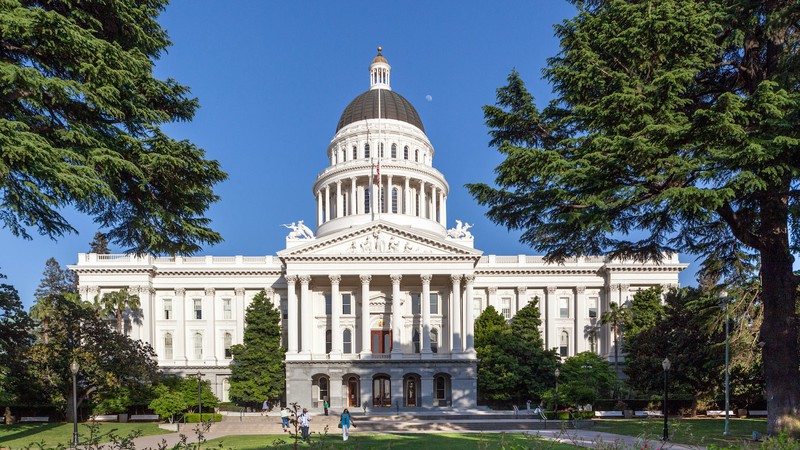
The state legislature passed a basic income bill Thursday without a single ‘no’ vote. Rafał Konieczny / Wikimedia Commons C.C. 4.0 Share-Alike License
About a year after Santa Clara County approved a program to provide $1,000 per month in “basic income” payments to young adults making the move out of foster homes into their communities to live independently—the first program in the country to do so—the state of California has followed suit.
On Thursday, the state legislature voted to make California the first of the United States to start a “basic income” program, approving $35 million that, once the bill is signed by Gov. Gavin Newsom, will provide regular payments to young adults transitioning from foster care, as well as to pregnant women. In theory, other groups could become eligible for the payments as well, because the bill leaves decisions on how to distribute the cash up to individual cities and counties, each of whom must apply to receive a share of the money.
Though the programs will provide a guaranteed, minimum monthly paycheck for recipients, the California program is not the same as a Universal Basic Income, of the type that formed the centerpiece of 2020 Democratic presidential candidate Andrew Yang’s campaign.
Under Universal Basic Income, or UBI, every adult citizen would receive a monthly payment, usually of $1,000 as in Yang’s plan, or a similar amount. The basic income payments under the California plan will be targeted to specific groups.
But the targeted basic income and the “universal” version share one important characteristic—the payments come with no strings attached. People can spend the money in any way they choose.
“It changes the philosophy from ‘big brother government knows what’s best for you,’” state Sen. Dave Cortese of San Jose—who as a Santa Clara County supervisor initiated that county’s basic income program—told the Associated Press. “We’ve been very prescriptive with that population as a state and as counties go. Look at the failure. Half of them don’t get their high school diplomas, let alone advance like other people their age.”
Cortese was also behind the statewide basic income plan, which he says was modeled after the plan he originated in Santa Clara County last year. The $35 million will fund new basic income pilot programs, as well as those already in existence. In addition to Santa Clara County—which recently extended its basic income program for another year—Oakland, Marin County, San Francisco and Stockton all have some form of basic income program in place.
Though critics of the basic income concept claim that providing people with what is essentially free money risks taking away their incentive to find and keep employment, in Stockton full-time employment among recipients went up by 12 percent in the first year of the program.
The Stockton program selected 125 recipients at random from neighborhoods where median income was at or below the citywide median, and provided them with $500 per month, without any conditions on how they spent it. After two years, researchers found that the money was primarily spent to meet basic needs, with 37 percent going toward food, 22 percent toward home goods such as clothing and shoes, and 11 percent on utility bills.
Less than 1 percent of the total cash spent by Stockton’s basic income recipients went to purchase alcohol or tobacco products.
Short articles summarizing reporting by local news sources with linkbacks to the original content.